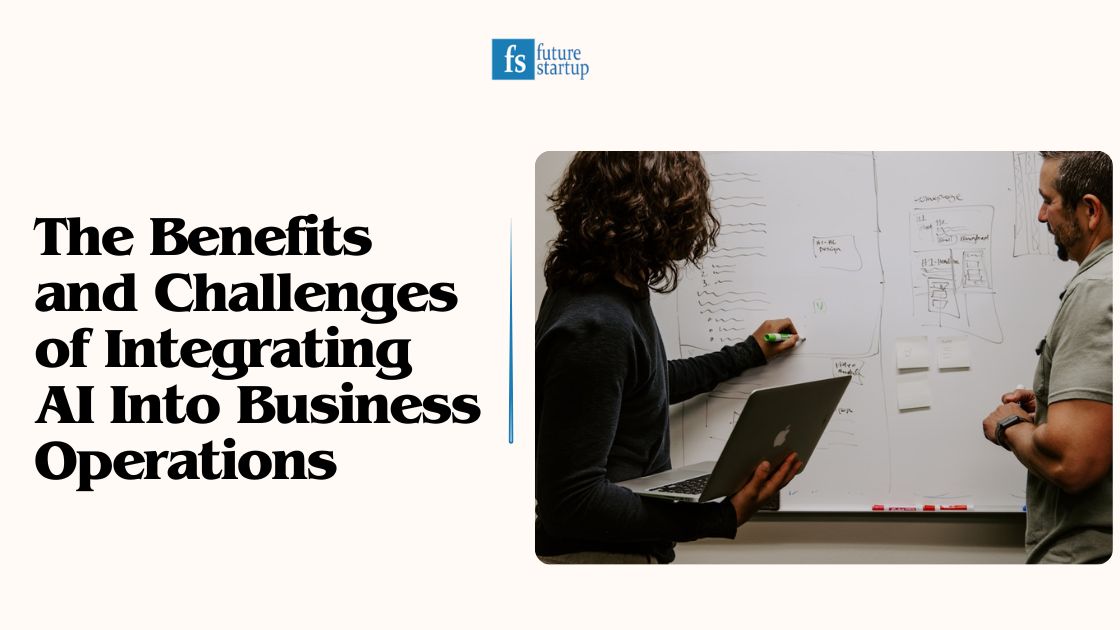
The advent of artificial intelligence (AI) has revolutionized how businesses operate, offering unprecedented opportunities for growth and innovation. As companies seek to remain competitive in a rapidly evolving market, integrating AI into their operations has become more of a necessity than a luxury.
AI offers the potential to streamline processes, personalize customer experiences, and unlock new insights from data. But while the advantages are numerous, the implementation can be fraught with complexity and ethical considerations.
In this article, we delve into the intricacies of AI in the business landscape to help you understand both the transformative potential and the challenges it presents.

AI is transforming business by streamlining tasks and delivering smart analytics that mimic human decision-making. With tools like machine learning and natural language processing, companies can innovate faster, improve supply chains, and predict customer needs more effectively.
BA Insight helps businesses harness the power of AI integration, reducing costs by automating repetitive work and freeing employees for more strategic roles. To get the most out of this technology, leaders need a clear understanding of where AI adds value and how to align it with their goals.
AI integration significantly boosts organizational efficiency and productivity by processing large data sets rapidly and uncovering actionable insights. It automates repetitive tasks, allowing employees to focus on higher-value work, which fosters agility and innovation. In manufacturing, AI enhances operations through predictive maintenance, reducing downtime and streamlining production.
These benefits contribute to a more engaged and efficient workforce. To fully realize AI’s potential, organizations must integrate it thoughtfully into existing systems and invest in workforce training. Proper support and implementation are essential to ensure AI adoption leads to measurable productivity gains without disrupting workflows.
AI is revolutionizing customer service by enabling deep personalization through data analysis. Businesses can tailor product recommendations and marketing messages to individual preferences, boosting engagement and loyalty. AI-powered chatbots and virtual assistants provide 24/7 support, handling multiple inquiries at once and improving response times.
This enhances operational efficiency and customer satisfaction. AI strengthens customer relationship management by anticipating needs and delivering proactive solutions, fostering stronger connections. Despite these advantages, companies must balance automation with human interaction to preserve the personal element in service. AI should enhance, not replace, the authentic relationships that are essential to customer loyalty and brand trust.

Implementing AI in business involves several complexities, beginning with the need for strong infrastructure, including robust data architecture and processing power. Significant investment is also required, not just in advanced technologies but in hiring and developing skilled personnel to manage AI systems. A major hurdle is integrating AI with legacy systems, which may not be readily compatible and require strategic upgrades to avoid operational disruptions.
Scalability is another concern, as AI solutions must grow with the business. This requires a flexible and forward-thinking implementation approach that accommodates future demands while maintaining efficiency and minimizing potential risks linked to outdated systems or insufficient technical expertise.
As companies adopt AI, they must address ethical challenges such as job displacement, privacy concerns, and decision-making accountability. Data privacy and security are key, requiring businesses to safeguard customer information and comply with regulations to retain trust. Companies must also tackle algorithmic bias, which can result in unfair decisions and damage reputations.
Regular monitoring and refinement of AI systems are essential to mitigate these risks. Ethical AI integration also involves supporting employees through training, addressing fears about job loss, and offering upskilling opportunities to adapt to automation. Transparency, fairness, and responsibility are vital in building an ethical AI-driven workplace.
Overall, the seamless integration of AI into business operations offers a pathway to increased efficiency, enhanced customer service, and a sharper competitive edge. It demands strategic planning, considerable investment, and a commitment to ethical practice. As technology continues to evolve, so too must the approach businesses take in leveraging AI's many possibilities.
